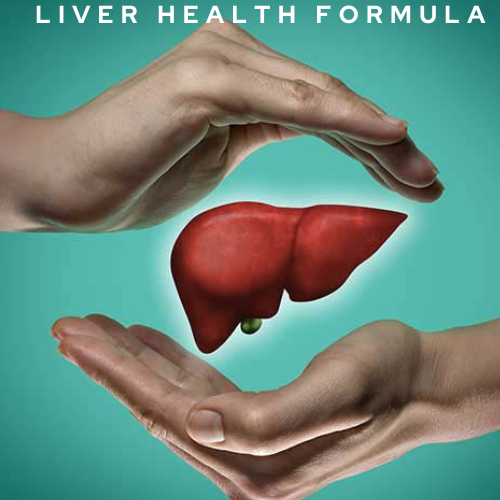Introduction
Liver cancer, also known as hepatic cancer, is a type of cancer that begins in the cells of the liver. It can arise from liver cells (hepatocellular carcinoma) or from cells in the bile ducts (intrahepatic cholangiocarcinoma). This article explores the symptoms, causes, diagnosis, treatment options, and prevention of liver cancer.
What is Liver Cancer?
Liver cancer occurs when abnormal cells in the liver grow uncontrollably, forming a tumor. It is often associated with underlying liver conditions such as cirrhosis, chronic hepatitis B or C infection, or fatty liver disease. Liver cancer can be primary, originating in the liver itself, or secondary (metastatic), spreading to the liver from other parts of the body.
Symptoms of Liver Cancer
Symptoms of liver cancer may include:
- Jaundice: Yellowing of the skin and eyes.
- Abdominal Pain: Pain or discomfort in the upper right side of the abdomen.
- Unexplained Weight Loss: Sudden and unexplained weight loss.
- Loss of Appetite: Decreased appetite and feeling full after eating small amounts.
- Fatigue: Feeling tired or weak.
- Swelling: Swelling in the abdomen or legs due to fluid buildup (ascites).
- Nausea and Vomiting: Feeling nauseous and vomiting.
Symptoms of liver cancer may not appear in the early stages or may be similar to other liver conditions. Early detection and diagnosis are crucial for effective treatment.
Causes of Liver Cancer
The primary risk factors for liver cancer include:
- Chronic Hepatitis B or C: Infections with hepatitis B virus (HBV) or hepatitis C virus (HCV) can lead to liver inflammation and increase the risk of liver cancer.
- Cirrhosis: Scarring of the liver tissue, often caused by chronic alcohol abuse, hepatitis B or C infection, or non-alcoholic fatty liver disease (NAFLD).
- Non-alcoholic Fatty Liver Disease (NAFLD): Accumulation of fat in the liver, which can progress to cirrhosis and increase the risk of liver cancer.
- Alcohol Abuse: Excessive alcohol consumption over many years can damage liver cells and increase the risk of liver cancer.
- Family History: Having a family history of liver cancer or certain genetic conditions can increase the risk.
Diagnosis of Liver Cancer
Diagnosing liver cancer typically involves:
- Imaging Tests: Such as ultrasound, CT scan, or MRI to visualize the liver and detect tumors.
- Blood Tests: To assess liver function and check for elevated levels of tumor markers such as alpha-fetoprotein (AFP).
- Biopsy: A sample of liver tissue is taken and examined under a microscope to confirm the presence of cancer cells and determine the type of liver cancer.
Early diagnosis is essential for determining the stage of liver cancer and planning appropriate treatment.
Treatment Options for Liver Cancer
Treatment for liver cancer depends on the stage of the cancer, the location and size of the tumor, the overall health of the patient, and other factors. Treatment options may include:
- Surgery: Surgical removal of the tumor or a portion of the liver (partial hepatectomy).
- Liver Transplant: Transplantation of a healthy liver from a donor into a patient with liver cancer.
- Ablation Therapy: Destruction of cancerous tissue using techniques such as radiofrequency ablation (RFA) or microwave ablation.
- Radiation Therapy: Use of high-energy radiation to kill cancer cells or shrink tumors.
- Chemotherapy: Use of drugs to kill cancer cells or stop their growth (systemic chemotherapy or transarterial chemoembolization).
- Targeted Therapy: Drugs that target specific molecules involved in cancer growth (targeted therapy).
Treatment may involve a combination of these approaches and is tailored to each individual's specific condition and needs.
Prevention of Liver Cancer
Preventing liver cancer involves reducing risk factors such as:
- Vaccination: Vaccination against hepatitis B virus (HBV) can reduce the risk of chronic infection and liver cancer.
- Screening and Early Detection: Regular screenings for individuals at high risk of liver cancer, such as those with chronic hepatitis or cirrhosis.
- Healthy Lifestyle: Maintaining a healthy weight, avoiding excessive alcohol consumption, and adopting a balanced diet can reduce the risk of liver cancer.
Expert Insights on Liver Cancer
Medical experts stress the importance of early detection and treatment for improving outcomes in liver cancer. They recommend regular screenings for individuals at risk and lifestyle modifications to reduce the risk of liver cancer development.
Frequently Asked Questions
- Can liver cancer be cured? Early-stage liver cancer can often be cured with surgery or other treatments. Advanced liver cancer may be more challenging to treat.
- What are the survival rates for liver cancer? Survival rates for liver cancer vary depending on the stage at diagnosis and the effectiveness of treatment. Early detection and prompt treatment can improve prognosis.
- Is liver cancer preventable? While not all cases of liver cancer are preventable, adopting healthy lifestyle habits and managing underlying liver conditions can reduce the risk.
Conclusion
In conclusion, liver cancer is a serious condition that develops from abnormal growth of cells in the liver. Understanding its symptoms, causes, diagnosis, treatment options, and prevention strategies is crucial for managing and potentially curing liver cancer. Early detection, effective treatment, and lifestyle modifications can significantly impact outcomes and improve quality of life for individuals with liver cancer.



